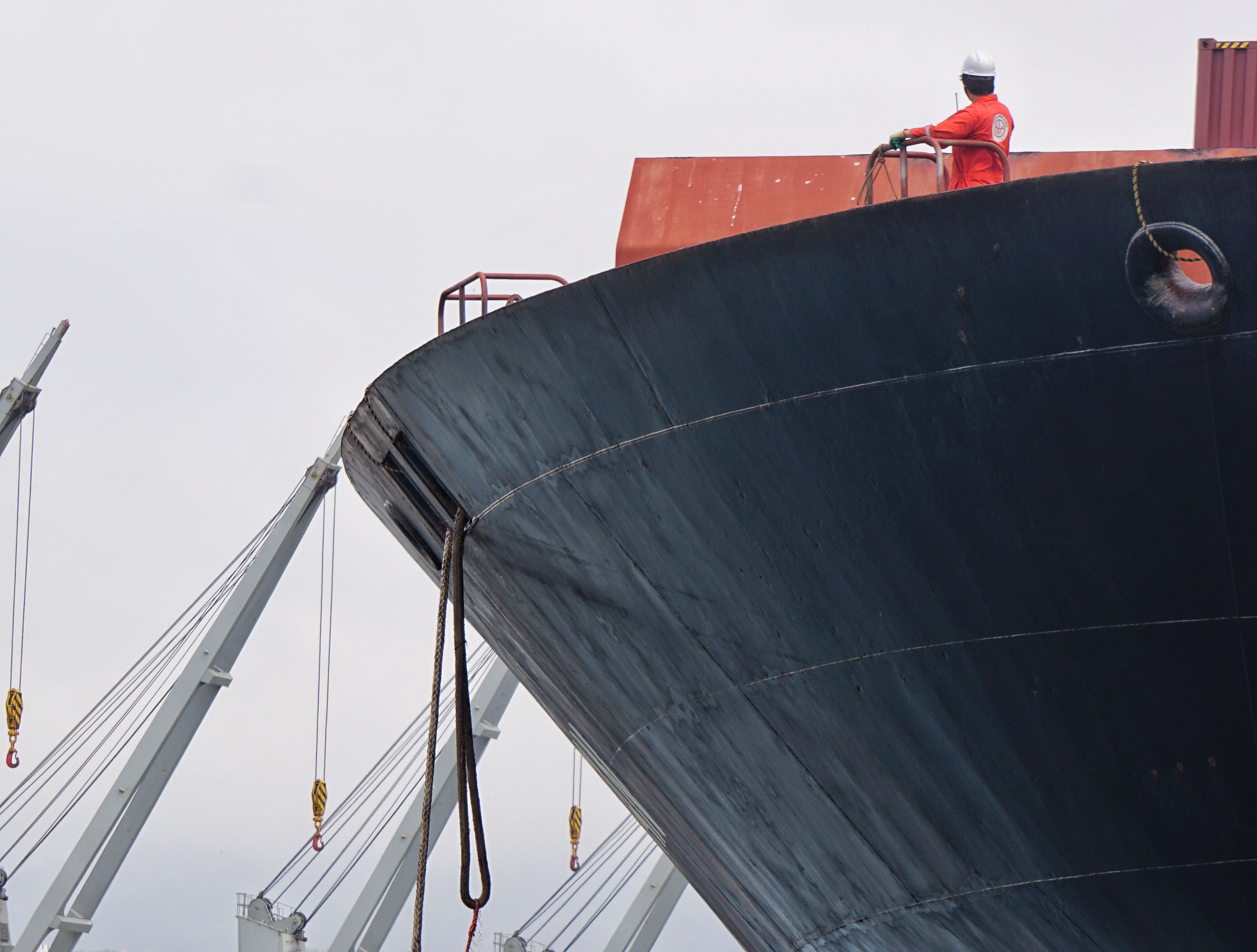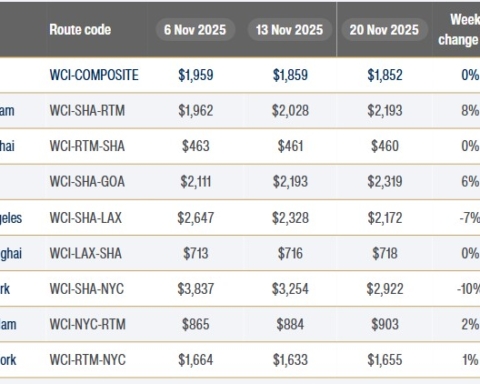All’s quiet on the box front, apparently. Under the ashes there’s a lot of tension simmering, with potentially explosive developments. This is how Giorgio Poggio sums up the current container shipping market scenario.
“The pressure of inflation, which gradually became more apparent over the course of 2022 until it reached a peak in October – also due to the geopolitical crisis on the eastern borders of the European Union – certainly had an impact on the purchasing power of entire households, consequently affecting the demand for commodities and, therefore, for transport,” says the managing director of shipping company Aprile UK and director general of the Executive Committee of the Italian Chamber of Commerce in the UK (ICCIUK).
“Today, after having reached one of the lowest points in the economic cycle at the end of 2022, we are beginning to see an initial market recovery, although the trend is not homogeneous on a macro-regional basis,” Mr. Poggio adds, explaining how retailer restocking is acting as a positive driver for the shipping segment in Europe, with imports up 1.73% year-on-year and almost 28% month-on-month in March.
“Due to a higher commodity turnover ratio, Europe started to buy stocks from China again from October 2022, coinciding with the first major drop in ocean freight rates. The lower incidence of transport costs on the value of goods now gives European retailers the room to manoeuvre that the Americans don’t have.”
In North America, there hasn’t been the same upward curve: “Warehouses are still saturated with goods purchased during the peak freight period, when the incidence of transportation costs on the value of goods was very high.” Demand, although up in March by 33% compared to February, has therefore not returned to the previous year’s levels, being 22% lower.
“The most important fact is that we are back to 2019 levels, but things have only apparently calmed down. On the supply side, we are in line with demand in a market going through a recession. A new negative event would be enough to put pressure back on a sector that is very precarious. The next few months will be very rocky: we will certainly have many ups and downs.”
It is not easy to know how to move in such a delicate scenario, especially for shippers: “Some understand, many just follow the mood of the moment, others are only concerned with negotiating the best freight rates. More needs to be done” admits the director of the Italian Chamber of Commerce in London.
“In a highly volatile environment, being able to forecast trends in transport costs is essential if not vitally important. This is the added value that a well-prepared freight forwarder can and must offer: a good forecast allows you to be successful in the market.”
The experienced freight forwarder mentions two of his clients specializing in importing garden furniture from Indonesia as examples. “In the summer of 2022, when freight rates were around $21,000 per TEU, I advised both retailers to wait until January before replenishing their stocks. In fact, I was convinced that freight rates would drop significantly in the new year, which would lower transport costs.”.
What happened is simple. “One of my clients took my advice and found himself filling his warehouses in three months, from January to March, paying $1,200 per TEU for transporting one hundred containers, or a total of $120,000, i.e. 3% of the value of his goods, which is around $35,000 per TEU. My other client, on the other hand, in a hurry to build up a buffer stock to meet market demands in a timely manner, ended up spending a total of £2.1 million for transporting 100 containers, i.e. 60% of the value of the goods.”
The moral of the story is clear: ‘The customer who followed my advice can now afford to sell his furniture at half the market price and still make a profit. The second one, on the other hand, is in danger of making a loss and certainly cannot lower his selling price, having spent EUR 2 million on transport alone.”
If analyzing trends allows experienced shippers to predict market trends characterized by rising or falling highs and lows, the future remains uncertain, even for the big carriers themselves. “Shipping companies do, however, have considerable room to manoeuvre to correct the upward trend in freight rates seen so far,” our interviewee points out.
Blank sailings are, from this point of view, an effective weapon: “By cancelling some sailings, if not entire services, carriers can artificially introduce disruptive elements into the logistics chain, taking vessel capacity away from the market and reducing their own reliability in terms of the punctuality of their boxships. It is no coincidence that schedule reliability is now around 60%. Given the current global capacity, reliability should be close to 90%, but this is not the case,” explains Mr Poggio, who considers so-called blank departures to be unethical.
“To date, 40% of liner services are subject to delays. By cancelling a service or a departure, shipping lines are forcing companies to review their inventory management policies and to build up an emergency safety stock, with additional costs that weren’t foreseen. This should be regulated at EU level: carriers should not be allowed to use blank sailings as they please. Someone in Europe should put a stop to it. Likewise, a law should be introduced making it illegal for freight rates to fall below a certain level.”
In short, the ICCIUK director would like to see a more regulated market: ‘I realize it’s a sensitive topic but we have reached a point where so-called ‘black swans’ have become the norm in our Industry: the Suez Canal getting blocked, the pandemic crisis, the conflict in the Ukraine and the resulting energy crisis have made the market even more unstable, leading it to sudden peaks and troughs that are not always predictable.”
Mr. Poggio is convinced: “I don’t think it is entirely wrong to introduce regulations to safeguard all the links in the logistics chain, including carriers. After all, we absolutely cannot afford another Hanjin scenario. The consequences would be disastrous for everyone.”

Translation by Giles Foster




